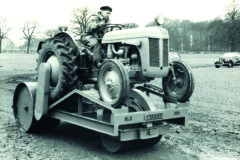1934 Sentinel timber tractor
Posted by Chris Graham on 30th April 2021
David Vaughan reports on a rare 1934 Sentinel timber tractor that’s returned to steam after a very successful winter refit.
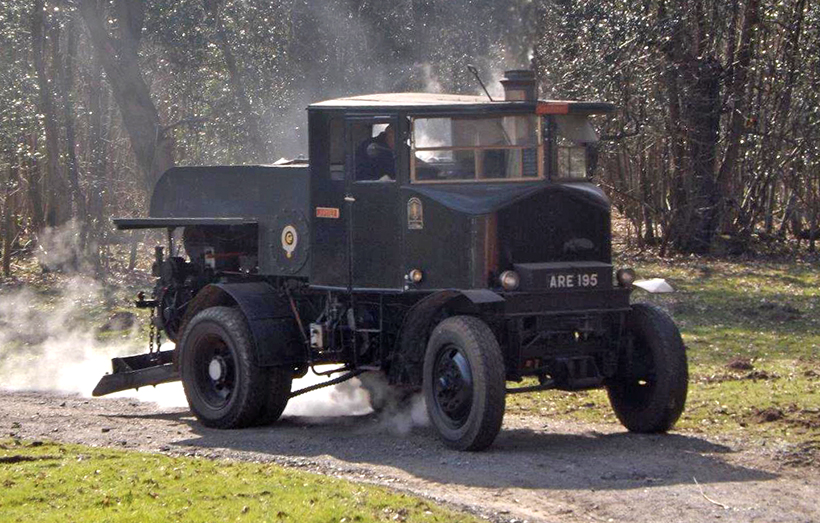
1934 Sentinel timber tractor: With the new piston valves and rings fitted, Jupiter enjoys a sprightly test run around Tinkers Park, and is passed fit for service.
The 1934 Sentinel timber tractor No 9097 Jupiter was first registered in October of that year, and supplied to A Wooton & Sons of Cannock, in Staffordshire. It was acquired by the Claude Jessett Trust in 2006.
The engine is classed by Sentinel as a TGP-4hp, and weighs in at 8 tons 15 cwt. It’s an unusual example of such a tractor, as it has a separate winching engine mounted on the rear. There’s a 300-gallon water tank mounted behind the cab, which is usually good for about 50 miles on the road.
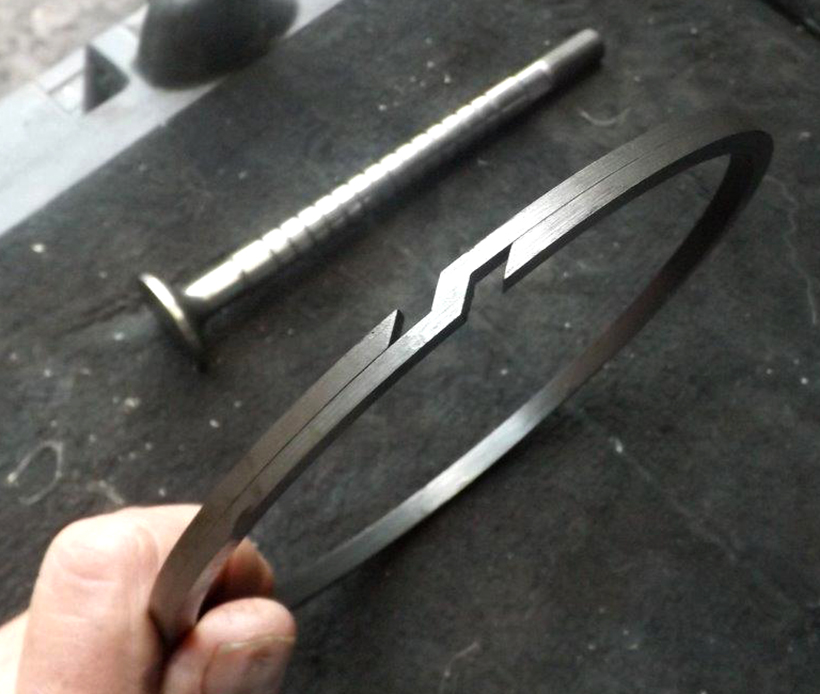
The Clupet piston rings proved a great success. Here you can see their unique design.
JR Goold Steam Ltd, of Bristol, fitted a new outer box to an existing boiler, two, new cast-iron cylinders, plus a new regulator box, before handing it over to the Trust. Since then, it’s regularly been steamed at Tinkers Park events, and travelled under its own steam to many rallies, with some as far afield as Banbury and Welland.
The boiler’s inner box was condemned after testing in 2016, and it was decided to have a complete new boiler assembly made by Mendip Steam Services. It was returned to steam in 2019 and, although the new boiler was fine, it was soon found that the performance of the engine wasn’t up to scratch, and that it was necessary to fit new valves and piston rings.
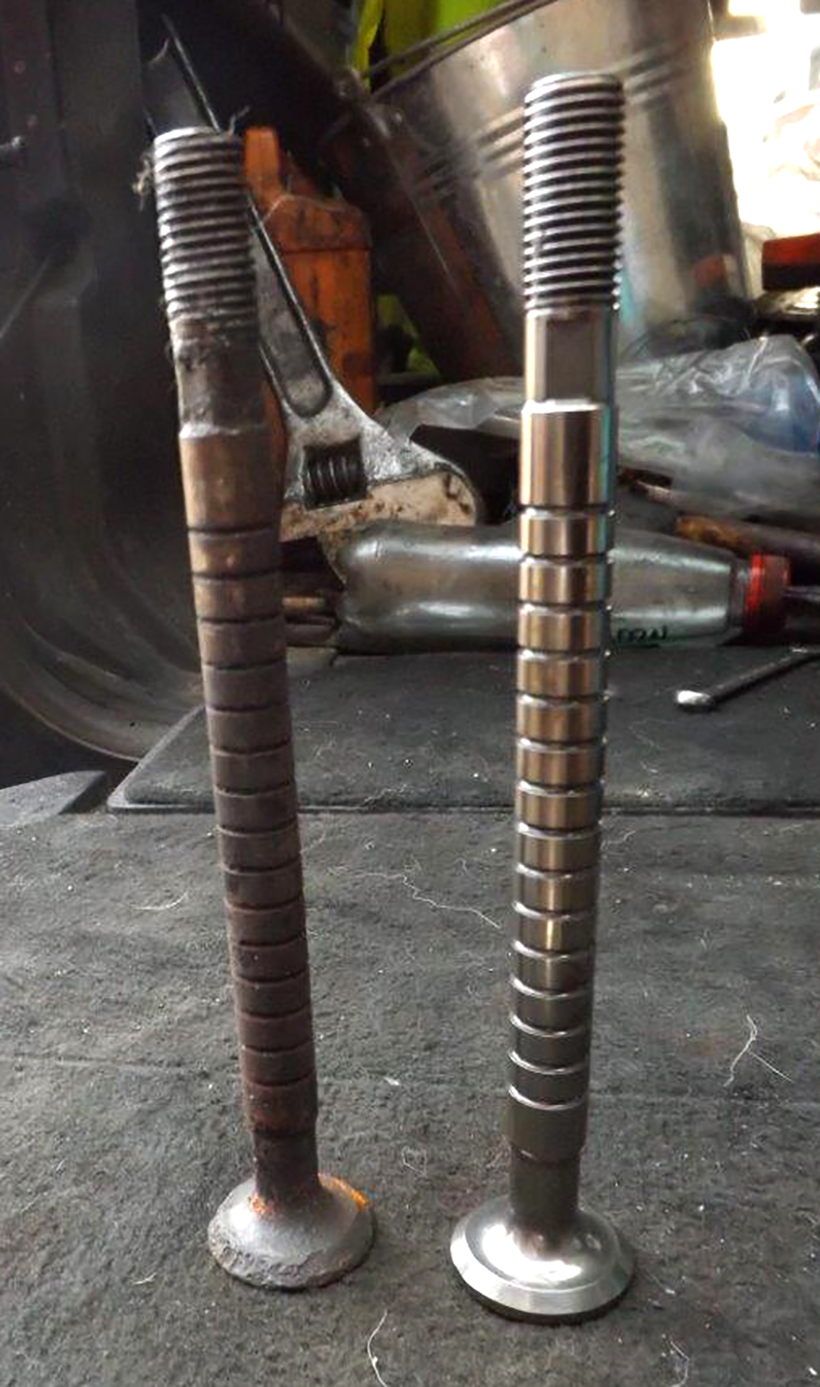
One of the Sentinel’s old piston valves (left) compared with one of the new, forged replacements, made by G&S Valves Ltd in Godalming, Surrey.
Recent, prolonged periods of lock-down have given the opportunity to many steam preservationists to carry out essential work on their engines, so that they’ll be ready for action once the hoped for, 2021 rally season gets under way. Thus the winter of 2020/’21 saw Jessett Trust volunteers Guy Osborne and Ben Floyd working hard to get the job done in time for the engine’s annual steam test on March 30th. However, various changes to lockdown restrictions delayed the scheduled somewhat but, by early in March, the Sentinel was ready to be taken on a road test.
The first job was to re-hone the cylinders and re-cut the valve seats. The new valves were supplied by G&S Valves Ltd of Godalming, which specialises in high-performance valves for F1 cars. The new components were specially forged, and were made after referring to an original drawing from the Sentinel archives supplied by fellow Sentinel owner, Jim Hatfield.
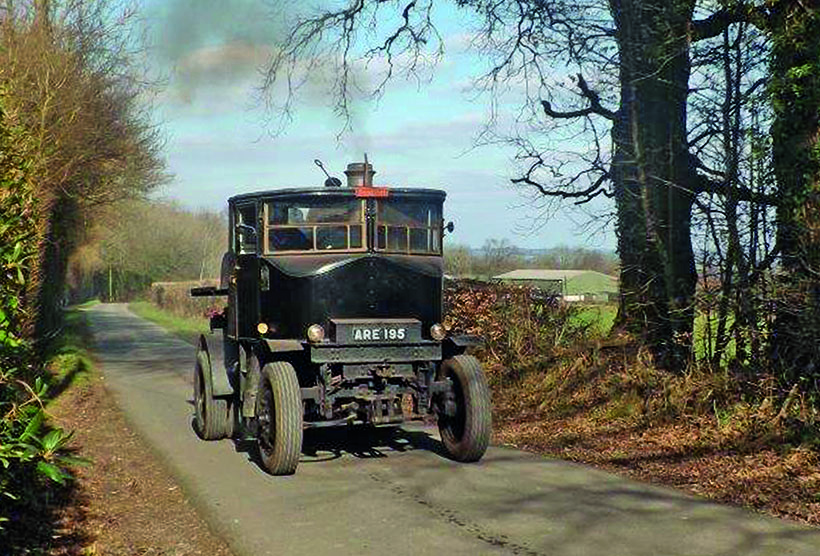
As a test of the Sentinel’s performance, Jupiter was sent out to collect Vera, a 20-ton Garrett road locomotive.
The piston rings were so badly worn and seized that they had to be machined out, and it was decided that they’d be replaced using Clupet-type rings made and supplied by Tim Jenkins of Rufford Steam Works. These rings are quite different from normal, plain rings, which expand and contract with every stroke, creating a gap for gasses to pass. Clupet rings avoid this by their unique split design; they’re said to cope with slight ovality in the bores, and to produce a more steam-tight joint. Six new rings were needed, three per cylinder.
Following the fitting of the new valves and piston rings, the Sentinel was given an initial run along the roads on the Tinkers Park site, and an immediate improvement in performance was noticed. Then it was decided to further test the engine’s performance by using it to push-pole Garrett 6nhp compound road locomotive Vera, from the owner’s home, back to the park. The journey distance was just over a mile away, and Vera was needed back there for its annual steam test.
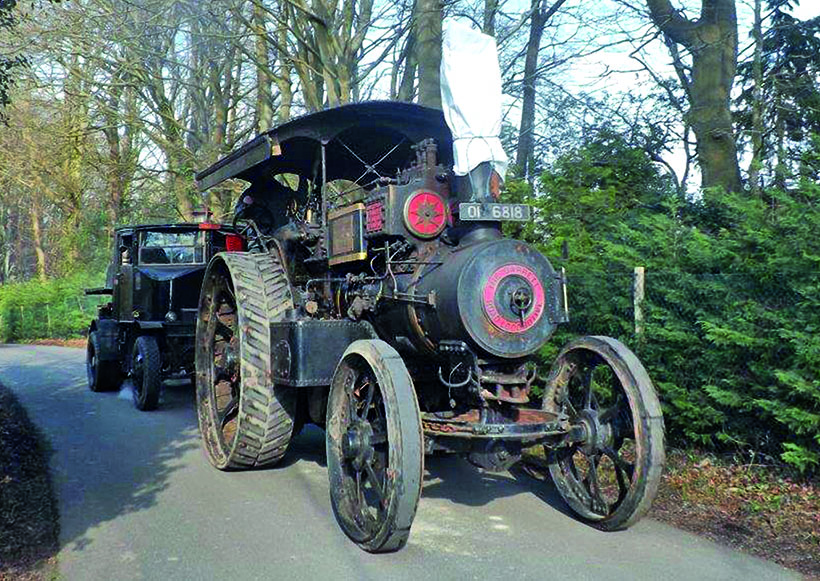
The Sentinel made light work of push-poling Vera up a steep, Sussex country lane; it wouldn’t have been able to push much at all before its recent valve refit!
The route involved manoeuvring the heavy engine out through a sharp turn immediately outside the gate, then tackling a steep climb up a country lane to reach the main road. However, this was successfully achieved, and the remaining, short run back to the park showed a marked improvement in its previous performance. Guy told me that the waggon’s coal consumption is now around 12 miles per hundredweight, compared to the six it was struggling to cover on the same amount of fuel, before the refurbishment!
After getting the engine up to its full, working pressure of 275psi, it was only necessary to put on a couple of shovels of coal during the trip back. Water consumption was also noted to have greatly reduced. The Sentinel certainly sounded good as it climbed the hill, and the whole team was very pleased with the results of the work undertaken.
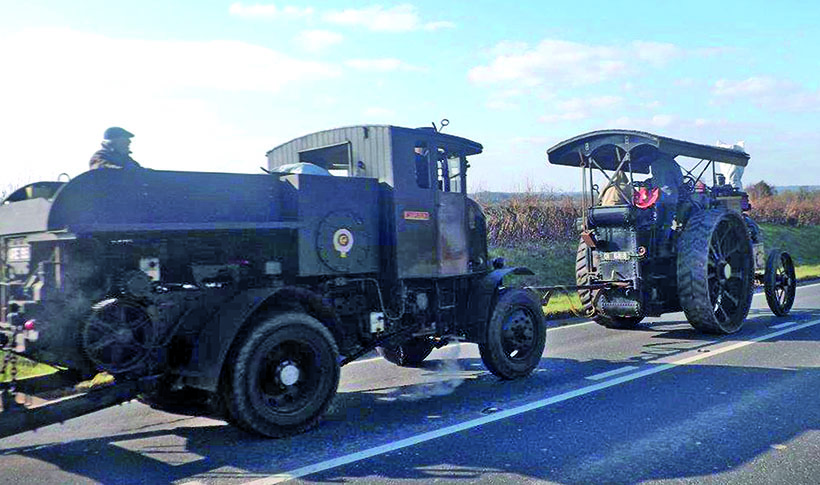
Here are Jupiter and Vera on the road during their journey back to Tinkers Park. The journey served to show the much-improved performance of the Sentinel; even on this comparatively short journey, the saving in fuel and water was noticeable.
For a money-saving subscription to Old Glory magazine, simply click here




